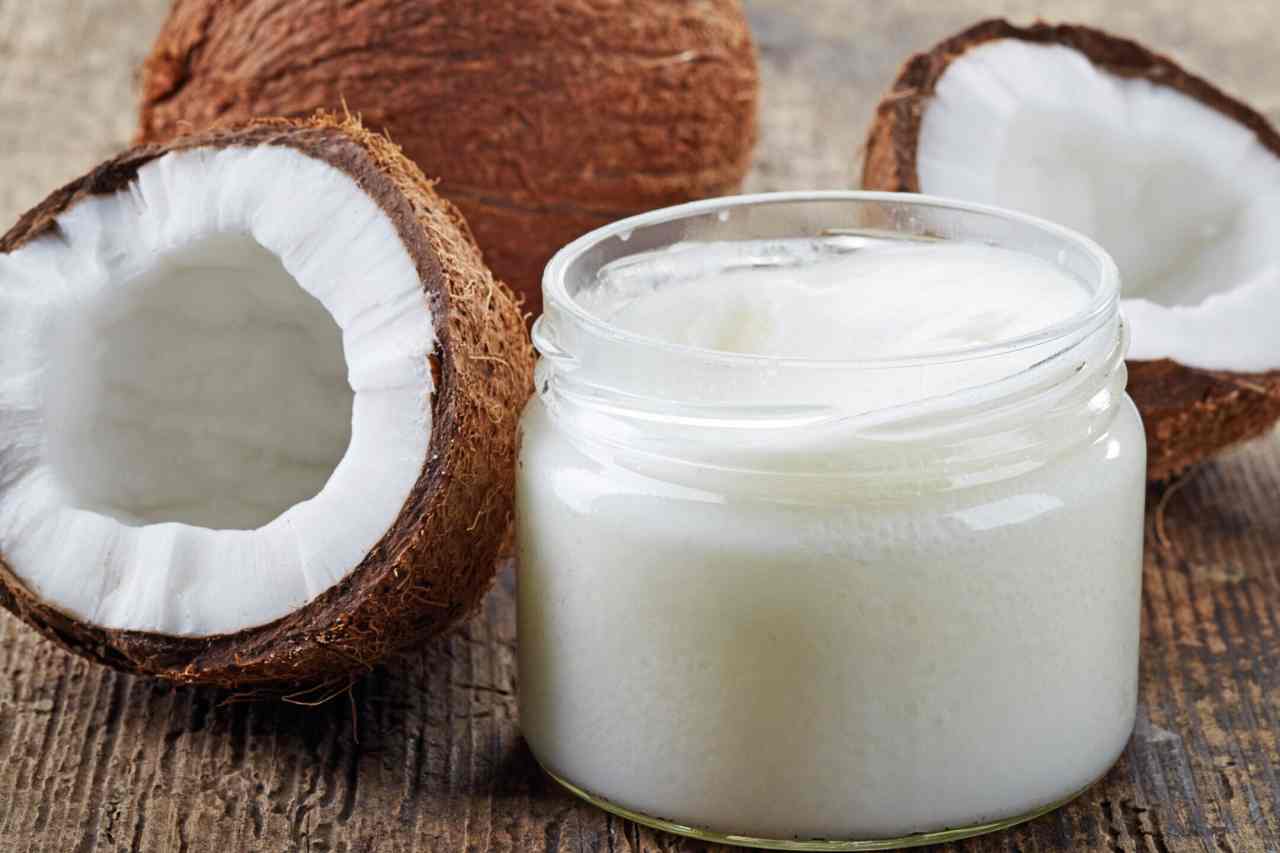Coconut oil has been lauded as a superfood. Most of coconut oil’s saturated fats content material is within the type of medium chain triglycerides, which the physique prefers to make use of as power somewhat than retailer fats. It additionally incorporates antimicrobial fatty acids, caprylic acid and lauric acid, and helps the physique produce ketones, which is an power supply for the mind.
However whereas coconut oil is a wholesome fats and a mainstay within the kitchen, there may be quite a lot of confusion round its labeling. For instance, what’s the distinction between refined and unrefined varieties? Or, how do they make these liquid varieties that by no means solidify, regardless of how chilly they get?
To get some readability round these coconut oil questions, we reached out to NOW®, an organization identified for its in depth line of coconut oil merchandise in addition to a dedication to transparency round components. We drilled down on the small print with Senior Diet Schooling Supervisor Neil Edward Levin, CCN, DANLA and a few of his solutions would possibly really shock you (Spoiler alert: extra-virgin coconut oil isn’t a factor!).
Learn on to seek out out precisely what you should know subsequent time you purchase or use coconut oil.
The fundamentals: refined versus unrefined coconut oil
Most of the phrases we’ve come to affiliate with coconut oil really originate from olive oil classifications, however the flaw in utilizing these phrases is that coconut oil is manufactured very otherwise than olive oil.
When manufacturing unrefined coconut oil, in accordance with Levin, the recent coconut “meat” is heated with scorching air to take away water that may trigger spoilage, then it’s mechanically pressed to take away the oil with out solvents. The refined selection, however, is constructed from coconut meat that’s dried within the solar, smoked or utilizing excessive warmth (the dried flesh is also called copra). Then the oil is mechanically pressed, refined with caustic soda, bleached and deodorized.
There’s undoubtedly a distinction within the course of of creating refined oils as a lot of the scent in addition to the gritty texture is eliminated. Nonetheless, among the different phrases related to coconut oil is probably not as significant.
You could be paying extra for that jar of cold-pressed – for no good cause
As a result of cold-pressed olive oil is taken into account superior, it’s solely pure to suppose that the identical goes for coconut oil – however not so quick.
Coconut oils are typically all derived from heated coconut meat, even when subsequently chilly pressed, in accordance with Levin. So even when it’s mechanically pressed, it would seemingly be utilizing coconut meat that’s beforehand been heated.
Whereas coconut oils might be made utilizing preheated coconut meat, there may be some variation to the diploma of heating that every producer will use to dry the coconut meat. Whereas some producers would possibly dry their coconut at a decrease temperature of 114℉, one other producer would possibly course of their coconut meat at 428℉. Based on Levin, the closest to uncooked you may get could be from a supply that ensures they course of their coconut meat at a managed decrease temperature.
So, whereas an oil could be chilly pressed, it isn’t as impactful when you perceive that it could have been heated at an earlier stage within the course of.
The misnomer of extra-virgin coconut oil
We all know that unrefined and refined are distinct varieties, however what about virgin? Based on Levin, virgin is solely a synonym for unrefined coconut oil.
But when virgin coconut oil is a pure, unrefined selection you then could be led to consider that extra-virgin is even higher. However that’s a misnomer, in accordance with Levin. “The time period ‘additional virgin’ has additionally been used, however has no actual definition and appears to be an inappropriate copy of the ranking for olive oils,” he says.
The always-liquid varieties
Coconut oil incorporates saturated fatty acids, and like different gadgets that comprise saturated fat (similar to butter), it tends to solidify at room temperature. So how do they make these varieties which can be clear and liquid and by no means get stable?
To fabricate liquid varieties, in accordance with Levin, producers will cool the oil to separate fractions that solidify at distinct temperatures because the temperature of the oil drops. This creates one thing referred to as fractionated coconut oil, which implies that the liquid model may be made as such as a result of it doesn’t comprise the identical vary of fatty acids as the entire coconut oil.
Smoke factors matter
Whereas unrefined oils are made with out the usage of solvents, there are occasions when you find yourself higher to go along with a refined coconut oil – all of it is determined by the temperature you’re cooking at. That’s as a result of unrefined coconut oils are likely to smoke much less because of the elimination of impurities similar to particulates, in accordance with Levin.
An unrefined selection will begin to smoke at about 350℉, whereas the refined model smokes at about 400℉. Both selection can be utilized for baking however simply regulate the temperature and use unrefined in your baked items at 350℉ or much less. In the event you’re doing any high-temperature baking or deep frying with coconut oil, use a refined selection.
Coconut oil in your magnificence cupboard
You could be stunned to be taught that it’s really the refined selection that’s most frequently utilized in magnificence merchandise. Based on Levin, it is because the unrefined varieties could overwhelm the aroma of the product, so the refined oils can present the identical profit with out the scent. Plus, the particulates that may nonetheless be present in unrefined oils can generally be irritating to the pores and skin.
And meals for thought: topical coconut oil is usually meals grade, as nicely, in accordance with Levin, however because the FDA doesn’t permit firms to label the identical product as being protected for topical and inner use, in follow you’ll by no means see that on the label.
Do you have to refrigerate it?
In contrast to different varieties of saturated fat like butter, coconut oil doesn’t must be refrigerated. “Coconut oil can solidify between 74℉ and 81℉, sometimes given as 78℉,” explains Levin, “however that really varies with the purity of the oil since stable particles function seeds for crystallization and sure fatty acids are likely to solidify because the temperature of the oil drops.”
He says you’ll be able to refrigerate the liquid varieties, however it could begin to separate and solidify at such chilly temperatures in order that’s private choice.
High quality issues
So now that you’ve readability round when to make use of which selection, is there anything to know? What about truthful commerce and high quality assurance? We posed that query to Levin.
“Honest commerce is fascinating, however extra essential are the safety of rainforests and habitat, and the avoidance of utilizing monkeys to reap,” explains Levin. “[Also] a trusted model is all the time an indication of high quality. Accountable firms like NOW evaluation Gasoline Chromatography check outcomes exhibiting fatty acid profiles of every incoming lot of oil to verify the id and purity of that oil, in addition to testing for oxidation to guarantee freshness.”
Additionally learn, All the pieces You Must Know About Fish Oil and All the pieces You Must Know About Shopping for and Cooking with Olive Oil.
From Clear Consuming







